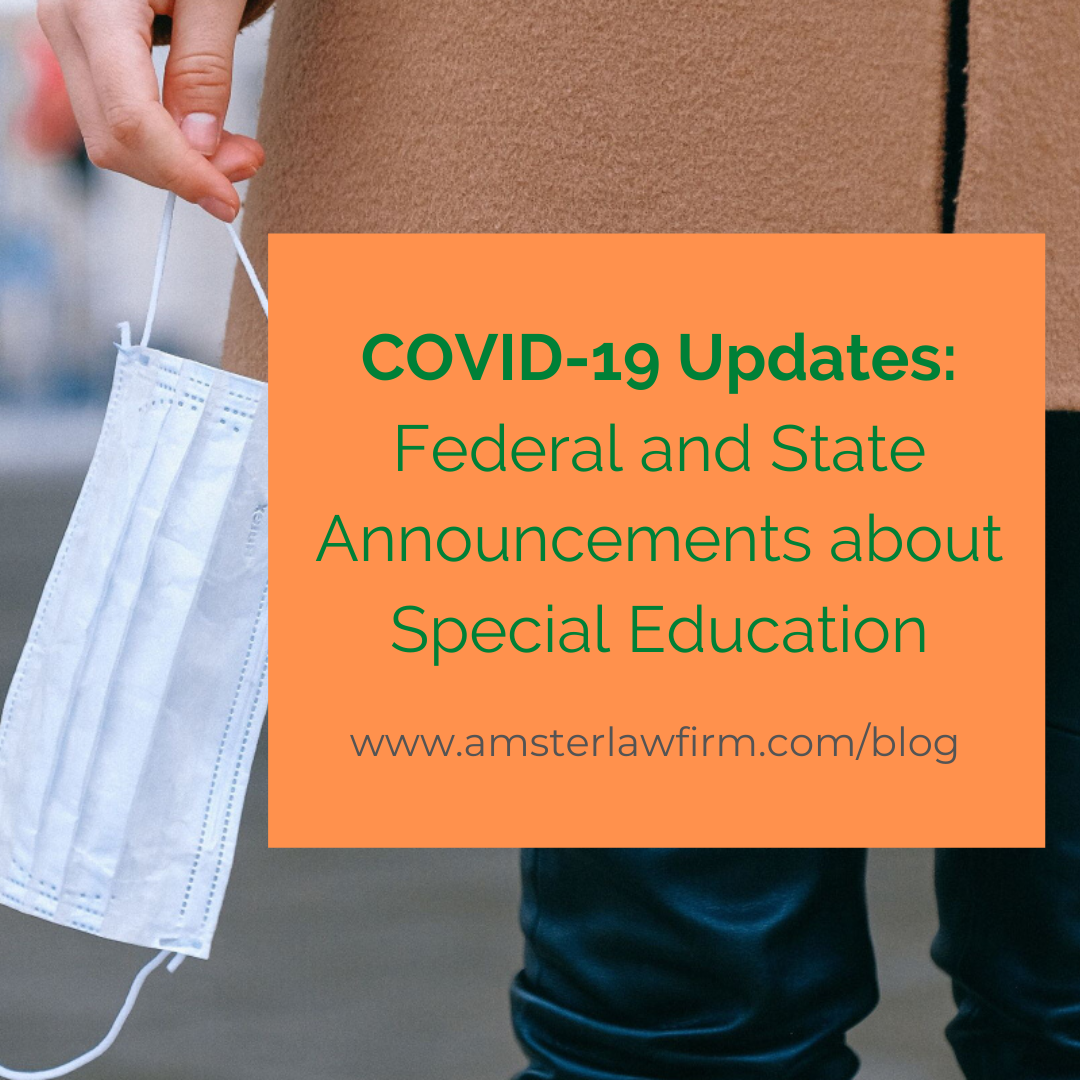On April 27, 2020, much to my surprise, U.S. Secretary of Education Betsy DeVos recommended Congress not make any exceptions to the Free Appropriate Public Education (FAPE) and Least Restrictive Environment (LRE) requirements of the Individuals with Disabilities Education Act (IDEA) during the COVID-19 pandemic (for an overview of FAPE and LRE, click here.) This is welcomed relief to parents and advocates of students with disabilities. Secretary Devos emphasized that learning must continue for all students during these turbulent times. The Secretary told Congress that there was no reason that a student’s access to FAPE cannot continue online, through learning remotely or other alternative, creative strategies.
“We undertook this task acknowledging the reality that most students and teachers are at home today; yet, America’s teachers want to keep teaching and students need to keep learning,” explained Secretary DeVos. “While the Department [of Education] has provided extensive flexibility to help schools transition, there is no reason for Congress to waive any provision designed to keep students learning. With ingenuity, innovation, and grit, I know this nation’s educators and schools can continue to faithfully educate every one of its students.”
Although all in the special education community were excited about this news, it doesn’t mean that sometime in the future Congress could pass a law that would limit or change the IDEA requirements. Also, it is my hope that Congress does provide more funding for all education, including special education. All students will be behind when we return to school and special education students will be more behind. Schools need to have the funds to make all students whole again.
Similarly, on the State level, the California Department of Education (CDE) recently announced more special education guidelines for the pandemic.
The CDE decided that local educational agencies (LEAs) did not need to amend IEPs to reflect the change to learning remotely. In these unprecedented times, the CDE said that it was “not necessary for an LEA to convene an IEP meeting, or propose an IEP amendment without a team meeting, for every student, solely for the purpose of discussing the need to provide services away from school, because that change must necessarily occur due to the COVID-19 pandemic.” The IEP that was in effect before schools closed remains in effect, and schools should, to the greatest extent possible, continue to provide services in alternative ways.
In addition, the CDE determined that in some cases, schools may need to provide in-person supports and services to students at home in order to “maintain the students’ mental/physical health and safety for the purpose of supporting the student in accessing the alternative options for learning being offered (e.g. distance learning).” In those cases, service providers may be considered “Essential Critical Infrastructure Workers.”
For more information on special education during COVID-19, the U.S. Department of Education continues to update ed.gov/coronavirus and the California Department of Education also regularly posts resources and recommendations. Be sure to also read What You Should Be Doing During COVID.


Add Comment